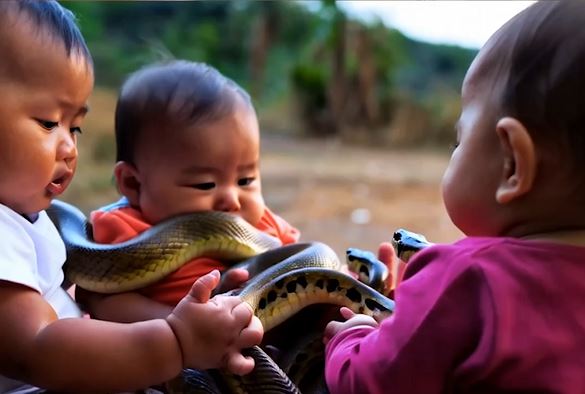It’s one of nature’s strangest mysteries: adults often feel a rush of fear when they see a snake — but babies? They seem completely unfazed.
A recent viral video showed a curious infant reaching toward a harmless garden snake with wide-eyed wonder. Instead of recoiling in fear, the baby smiled, giggled, and even tried to touch it. The clip has now been viewed millions of times, sparking a wave of questions online.
Instinct or Experience?
Scientists say the answer might be more complex than you think. While humans are capable of developing a fear of snakes, that reaction is often learned over time — not something we’re automatically born with.
“Infants simply haven’t yet been taught that snakes can be dangerous,” explains Dr. Lena Morris, a child development researcher. “Their reactions are driven by curiosity, not fear.”
Why This Matters
The study of early fear responses helps researchers understand how our brains develop and how experiences shape our reactions to the world. It also sheds light on the way cultural beliefs — and even family warnings — influence what we fear as adults.
The Viral Effect
The baby in the video wasn’t harmed, and the snake was handled carefully under supervision. But the clip’s spread across social media has ignited conversations about nature, instinct, and how humans learn to navigate danger.
Sometimes fear is instinctive — and sometimes it’s taught. Watching a baby see a snake for the first time reminds us how much of our worldview is shaped by what we learn along the way.
